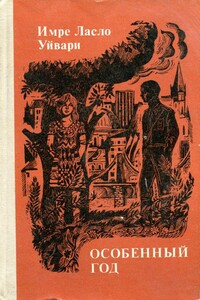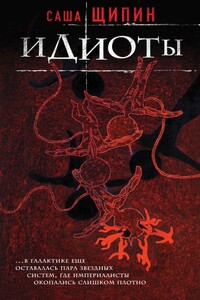36 Arguments for the Existence of God - [31]
What kind of fact is that? What kind of fact is it-if it is a fact-that I am Thomas Nagel? How can I be a particular person?
Cass only realized he had been holding his breath when he let it out. Here was the bedtime metaphysics that used to exercise him to the point of hyperventilation being described with precision by a prominent philosopher. (Thomas Nagel sounded prominent from the book jacket.) Cass here, Jesse there. The ritual used to send him hurtling so far outside himself that, night after night, he had become frightened that he might never find his way back in again, might never be able to take for granted that he was who he was. Cass had never hoped to find another person who could understand the strange state he used to induce in himself, and he had certainly never guessed that it might be shared by a philosopher.
It can seem that as far as what I really am is concerned, any relation I may have to TN or any other objectively specified person must be accidental and arbitrary. I may occupy TN or see the world through the eyes of TN, but I can’t be TN. I can’t be a mere person. From this point of view it can appear that “I am TN,” insofar as it is true, is not an identity but a subject-predicate proposition. Unless you have had this thought yourself, it will probably seem obscure, but I hope to make it clearer.
He became so caught up in The View from Nowhere, the dense mass of its distinctions parting for him like the sea, that he forgot the whole point of why he was reading it.
He wasn’t sure whether Professor Klapper would approve of Thomas Nagel. The style of The View from Nowhere was of the sort to send Jonas Elijah Klapper fleeing for protection from “the talismanic attachment of certain philosophers to logic. No thinker worth our contemplation is going to be held back by the Law of Non-Contradiction, which I do not recall being ratified with my approval.”
Cass heard the gong of the ten-minute warning and crash-landed back into Cass here. He thought he understood the reason why Gideon Raven had tossed him a spitball commending The View from Nowhere. It was precisely so that what had happened to him over the course of the last few hours would happen. Somehow or other, maybe even because Gideon Raven had gone through a similar baptism by fire, he’d known the right salve. Nothing but extra-strength objectivity could help.
Cass emerged from his narrow cell a minute or two before the library was going to close at midnight. The rows of carrels lining the walls down here in the bowels of the library were disgorging a thin stream of pale and brooding graduate students. Just a few carrels down from Cass was Gideon Raven, sliding his door shut behind him, giving the combination lock an extra, paranoid twist.
Raven spotted him and came over, taking the book out of Cass’s hand and reading the title with raised eyebrows.
“Might as well just walk over there together” is what he said as he handed Nagel back to Cass.
“The View from Nowhere,” it turned out, referred to a working-class bar in downtown Weedham that had a certain cachet with the graduate students. Its given name, at least as it was represented on the dimmed blue neon sign that had given out a long time ago, was “The View,” for no discernible reason, since it was just a dive on one of the side streets off moribund Maudlin Street, a wooden shanty no different from any on the decaying block. Some student wag had dubbed it “The View from Nowhere,” and the name had stuck among the cognoscenti.
There was a slight rain falling as they descended the steep hill that led out of the Frankfurter campus and headed into the down-at-the-heels center of Weedham, the sidewalk glinting whenever they passed a streetlight.
Cass had never spoken with Gideon before, and so he was surprised at the confidential tone that Gideon assumed from the very beginning, as if they had already gotten over the preliminaries.
“Lizzie, that’s my wife, is giving me hell. She didn’t want to move to Weedham. She hates it here. It’s hard enough for her to be the wife of a permanent graduate student, but at least in Manhattan she had the museums and movie theaters and her friends from Barnard. Here pretty much all she has is me. She works at the Edna and Edgar Lipschitz Library, but that’s not as exciting as it sounds.”
Cass had never before been the recipient of marital confidences, and he had no idea how to respond. It was the kind of mature activity he hadn’t imagined for himself. It must mean he was getting on in years, that he could be walking side by side with someone who was not only married but unhappily married.
“Yeah, I can see that” is all that he managed.
“In a sense, I can’t blame her. When we got married, I’d already been working with Jonas for four years, so it was safe to assume I was nearing the end. I told her I’d have my degree and a tenure-track assistant professorship, preferably on one of the coasts, in a year or two. I said it in good faith. Although maybe, in retrospect, I shouldn’t have been so confident. Maybe I should have taken the grim statistics into account.”

Честно говоря, я всегда удивляюсь и радуюсь, узнав, что мои нехитрые истории, изданные смелыми издателями, вызывают интерес. А кто-то даже перечитывает их. Четыре книги – «Песня длиной в жизнь», «Хлеб-с-солью-и-пылью», «В городе Белой Вороны» и «Бочка счастья» были награждены вашим вниманием. И мне говорят: «Пиши. Пиши еще».

В книге рассказывается история главного героя, который сталкивается с различными проблемами и препятствиями на протяжении всего своего путешествия. По пути он встречает множество второстепенных персонажей, которые играют важные роли в истории. Благодаря опыту главного героя книга исследует такие темы, как любовь, потеря, надежда и стойкость. По мере того, как главный герой преодолевает свои трудности, он усваивает ценные уроки жизни и растет как личность.

В книге рассказывается история главного героя, который сталкивается с различными проблемами и препятствиями на протяжении всего своего путешествия. По пути он встречает множество второстепенных персонажей, которые играют важные роли в истории. Благодаря опыту главного героя книга исследует такие темы, как любовь, потеря, надежда и стойкость. По мере того, как главный герой преодолевает свои трудности, он усваивает ценные уроки жизни и растет как личность.

Настоящая книга целиком посвящена будням современной венгерской Народной армии. В романе «Особенный год» автор рассказывает о событиях одного года из жизни стрелковой роты, повествует о том, как формируются характеры солдат, как складывается коллектив. Повседневный ратный труд небольшого, но сплоченного воинского коллектива предстает перед читателем нелегким, но важным и полезным. И. Уйвари, сам опытный офицер-воспитатель, со знанием дела пишет о жизни и службе венгерских воинов, показывает суровую романтику армейских будней. Книга рассчитана на широкий круг читателей.

Боги катаются на лыжах, пришельцы работают в бизнес-центрах, а люди ищут потерянный рай — в офисах, похожих на пещеры с сокровищами, в космосе или просто в своих снах. В мире рассказов Саши Щипина правду сложно отделить от вымысла, но сказочные декорации часто скрывают за собой печальную реальность. Герои Щипина продолжают верить в чудо — пусть даже в собственных глазах они выглядят полными идиотами.

Роман «Деревянные волки» — произведение, которое сработано на стыке реализма и мистики. Но все же, оно настолько заземлено тонкостями реальных событий, что без особого труда можно поверить в существование невидимого волка, от имени которого происходит повествование, который «охраняет» главного героя, передвигаясь за ним во времени и пространстве. Этот особый взгляд с неопределенной точки придает обыденным события (рождение, любовь, смерть) необъяснимый колорит — и уже не удивляют рассказы о том, что после смерти мы некоторое время можем видеть себя со стороны и очень многое понимать совсем по-другому.